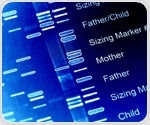| ||||||||||||||||||||||||||||||||||||
| ||||||||||||||||||||||||||||||||||||
| ||||||||||||||||||||||||||||||||||||
| ||||||||||||||||||||||||||||||||||||
| ||||||||||||||||||||||||||||||||||||
| ||||||||||||||||||||||||||||||||||||
jueves, 19 de abril de 2018
People with rare dementia may employ intact brain areas for help with language
People with rare dementia may employ intact brain areas for help with language
Suscribirse a:
Enviar comentarios (Atom)
































.png)











No hay comentarios:
Publicar un comentario